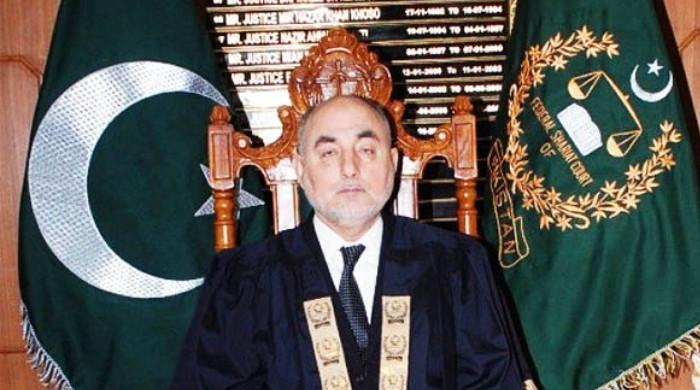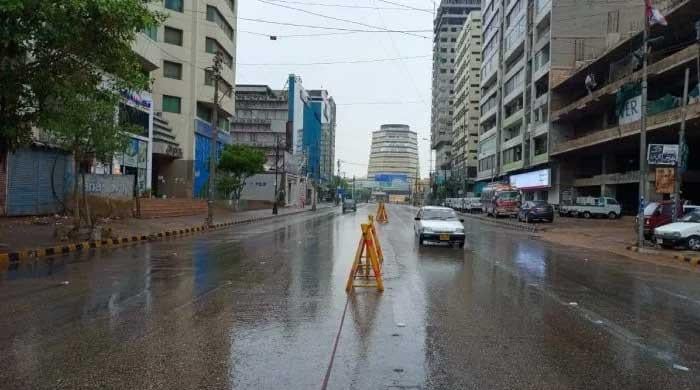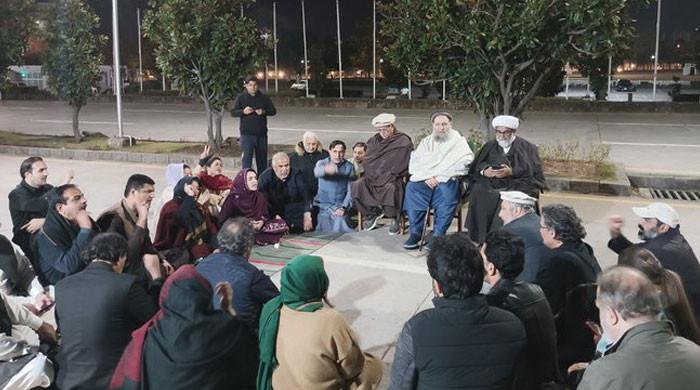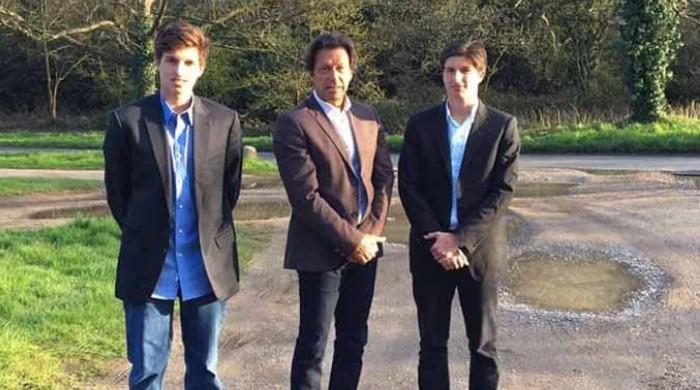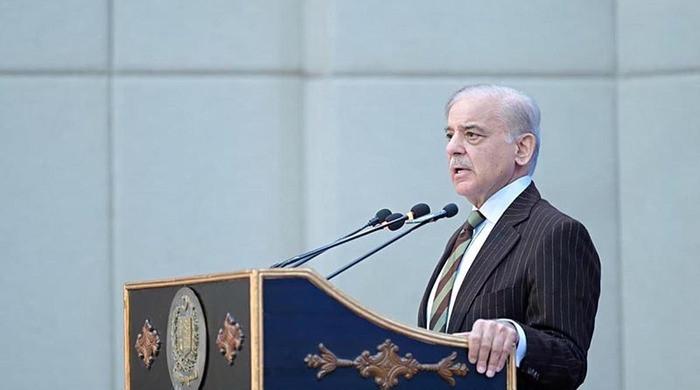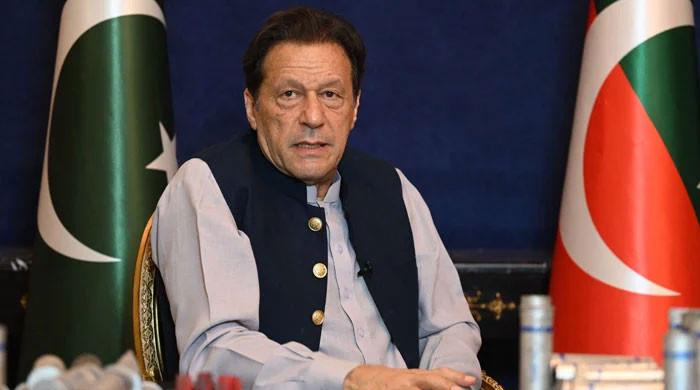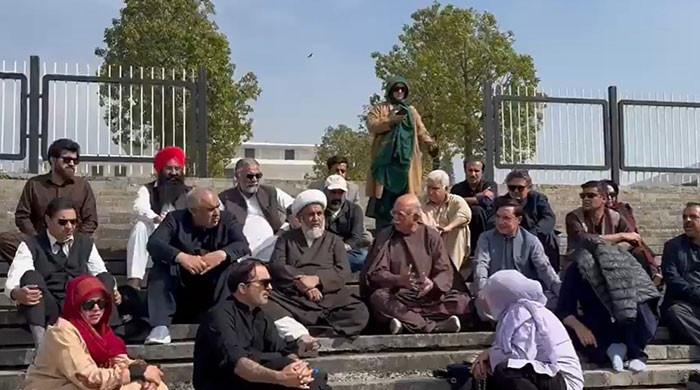'Today is an era of AI': Imran Khan says 'dictated' The Economist column
Imran Khan says PTI to share his AI speech “next week” on social media
January 09, 2024
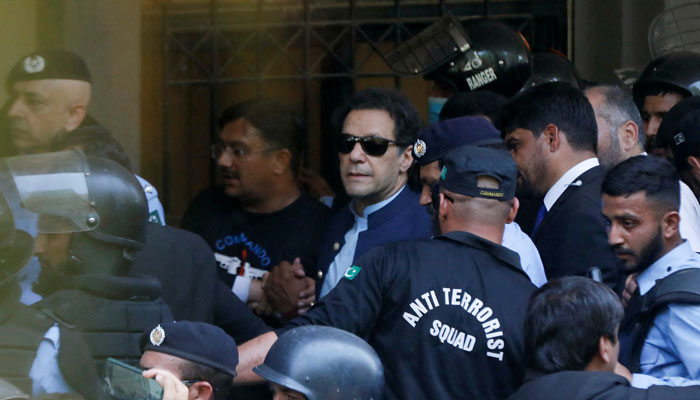
- PTI founder calls for timely nationwide polls.
- Says difficult for PTI to contest elections.
- Former PM says May 9 a conspiracy to trap him.
ISLAMABAD: Days after Pakistan Tehreek-e-Insaf (PTI) founder Imran Khan’s article in the UK publication — The Economist — caused a furore, the former prime minister shared that he had dictated the column, reported The News on Tuesday.
“I take full responsibility for the article published in The Economist recently,” he said in an informal conversation with reporters in the courtroom at Adiala Jail, Rawalpindi.
When Geo News asked him whether he wrote that article, he replied in the affirmative and clarified that he had dictated it.
He also shared that “next week” his party will share his fresh “speech” on “social media”.
When the Geo News reporter asked whether that speech would be an audio or a video, Khan replied, “Today is an era of artificial intelligence.”
To a question about elections, the PTI founder said nationwide polls should be held in the country on time though the process of participation had been made very difficult for his party. He stressed that elections must be held in any case.
“Elections are very important for the country’s economy and political stability.”
“It has been made difficult for us to contest the elections, yet the elections should be held on time,” he added.
The former premier said: “These people are conducting an inquiry against me regarding the May 9 incidents. May 9 is a conspiracy against us. Who stole the CCTV footage of my arrest from the Islamabad High Court, the attack on GHQ and Corps Commander’s House? Find the CCTV footage thieves, and all will be revealed.”
“It is a conspiracy to trap me; it’s a conspiracy against the PTI,” said the PTI founder.
'The Economist' column
The PTI founder is currently incarcerated in the Adiala jail of Rawalpindi, however, the British publication published an article "authored" by Khan that has become the talk of the town.
In the article Khan has lamented the lack of playing field for his party, alleging that the establishment is not ready to provide one.
He added that the polls conducted in such circumstances would be "farce".
Imran has stuck to his cipher narrative in the piece, writing that "I believe that the American official’s message was to the effect of: pull the plug on Khan’s prime ministership through a vote of no confidence, or else.”
He adds that "within weeks our government was toppled" and he discovered that former COAS Gen Bajwa had "been working on our allies and parliamentary backbenchers for several months to move against us."
Ever since its publication, the federal and Punjab governments claim it was a ‘ghost article’.
While Punjab’s jail authorities are investigating the matter, the real question is: do Pakistan’s prison rules allow an inmate to write a letter or article to any publication (national or international)? Can a prisoner be actively involved in politics while in prison? What do the Pakistan Prison Rules 1978 say about the rights of prisoners, their involvement in politics, or if they can write to or for a foreign publication?
Talking to The News, caretaker Federal Minister for Information and Broadcasting Murtaza Solangi said that Adiala Jail comes under the Punjab government’s jurisdiction, and as such the provincial government must be investigating this matter.
Saying that he believes this was a “ghost article”, the caretaker minister added that “The federal government will approach The Economist and write [to] them that if Imran Khan sends an article/letter following due process and the jail manual then it is publishable. But according to my information, he hasn’t written any such article, and the foreign publication has misled its readers. We are working on it and will soon write a letter to The Economist.”





